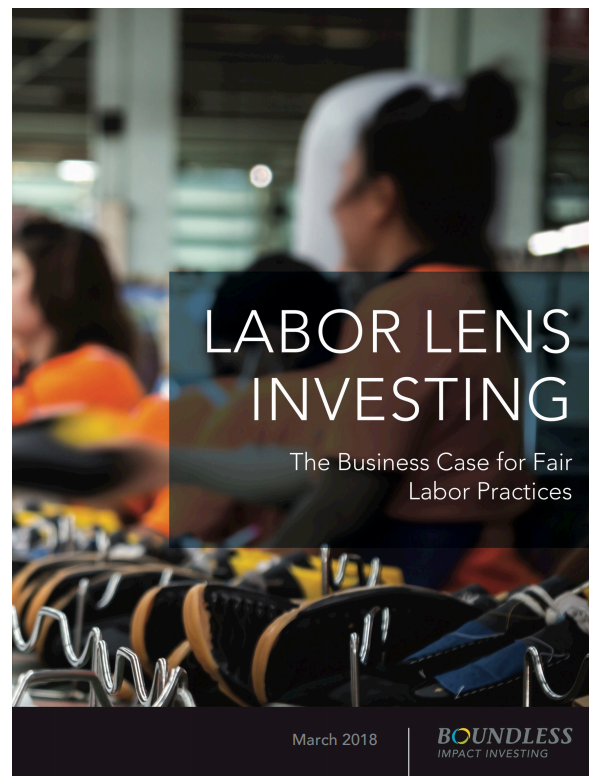This paper describes a promising new effort to fight global labour exploitation using financing strategies to advance and expand the global trend toward fair labour practices. It focuses on private market investment innovations and opportunities, where investors interested in improving global labour conditions while achieving positive financial results are most likely to meet their objectives.
The authors also uncovered some finance mechanisms that have been creatively engineered by a combination of business and human rights, social finance, and data experts. And, the nearly 30 interviews with investors and business and human right experts yielded more leads than this project enabled us to follow up on. Everyone interviewed wants investors to be more conscious about how their investments can help improve fair labour practices. All expressed genuine enthusiasm for the progress to date and encouraged more.

